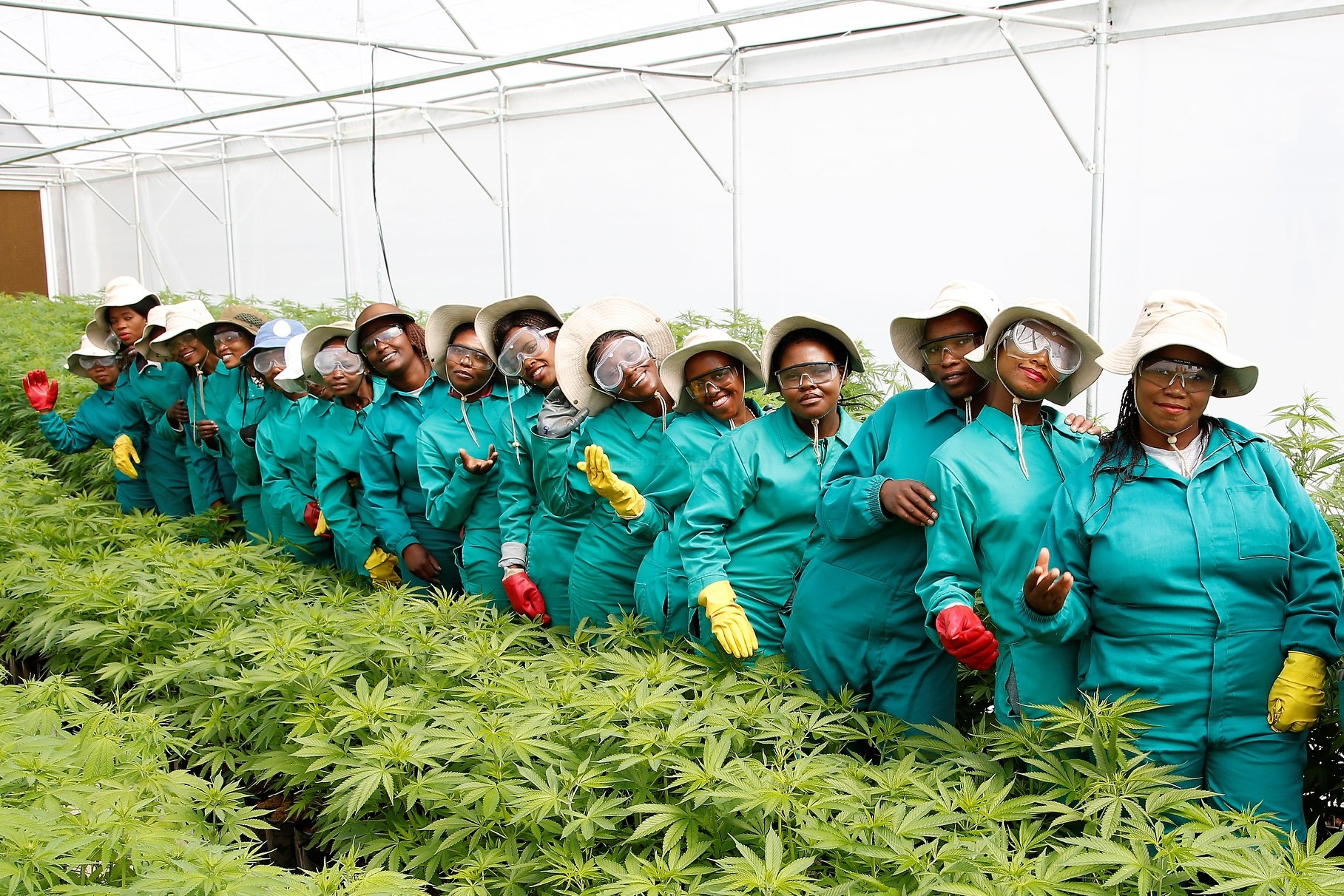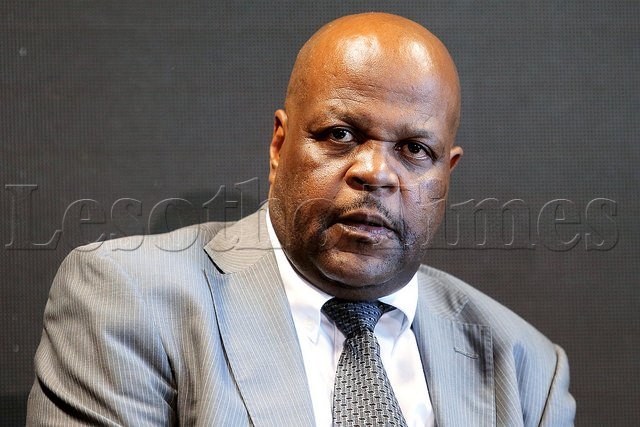
Bereng Mpaki
MARAKABEI villagers are up in arms with medical cannabis producer, MG Health (formally Medigrow Lesotho), who they accuse of paying them as little as M84 per month each for land the company leased to set up its production facilities.
Villagers who have found employment at the medical cannabis also allege MG Health has reneged on promises to pay them at least M4000 salaries each per month.
The locals say the below market compensation rates for their land and the woefully inadequate wages have left them worse off than they were when they used their land to grow their own crops.
MG Health acquired about 66 land parcels from individual landholders to set up its multi-million investment in the Marakabei area. The leases are for 20 years and the company currently employs 345 people.
In exchange for leasing their land to the company, the landholders get an annual compensation depending on the size of their plots. However, the villagers who initially agreed to the compensation rates have performed an about-turn and are now claiming that the company pays them M0, 82 per square metre of land and this is not enough.
“The compensation we are getting for our land is not satisfactory at all,” said one villager who spoke on condition of anonymity for fear of reprisals.
The villager claimed that she receives M1009 per annum as compensation for her land which is approximately an acre. This translates to just M84 per month.
Other villagers claimed they were paid amounts ranging from M1400 (M117 per month) to M1700 (M142 per month) for an acre of land per annum.
“I have children and other dependents to look after with that paltry money which I get once a year from the company,” said another villager.
Asked why they agreed to release their land so cheaply in the first place, the villagers said this was after the company promised it would also hire them as employees on decent salaries of at least M4000 each per month as well as lease their homes as accommodation for some of the workers from outside the community.
“We initially agreed to lease our land so cheaply because the company promised to hire us and pay us good salaries.
“But without the promised jobs, the compensation money for the land is not enough to sustain our families. We used to grow crops on that land and we used to sell fruits and medicinal herbs giving us much more than what are now earning annually for leasing out our land.
“Whenever we complain about the failure to fulfil its promises, the company tells us to be patient as it is yet to generate revenue because it has not yet started exporting its products,” one villager said.
Hlalele Moeketsi, the secretary of the community liaising committee, backed the villagers’ claims.
Mr Moeketsi also accused MG Health of failing to compensate villagers whose land was taken over to facilitate the construction of a road leading up to the company’s facilities.
“There are people from Ha Noha village whose land was taken for the construction of the road leading to the company’s production facilities and they have not been compensated.
“One of the promises the company made was that it would pay each employee no less than M4 000 salaries per month. But we understand there are workers who take home M1300 per month and this is not even half of what was initially promised,” Mr Moeketsi said adding, the company had so far failed to fulfil its promise to empower locals through various income generating projects.
On his part, the chairperson of the liaising committee, Tšepo Lethobane, said the company is failing to comply with its commitments as indicated in the environmental impact assessment (EIA) report. He said the company had promised to rehabilitate roads, connect villages to electricity and build toilets for the villagers among other things but none of these had being fulfilled.
He indicated that local chief, Lerotholi Marakabei, had failed to address their grievances and they had since approached the Principal Chief of Matsieng, Prince Seeiso Bereng Seeiso, for intervention.
“The matter is now before the Principal Chief of Matsieng and we are due for a meeting scheduled for 25 February 2020. Other relevant authorities such as the ministries of Labour and Employment; Environment and Culture as well as the district administrator have also been made aware of the plight of the villagers.
“The company is notorious for agreeing certain issues with the liaison committee only for it to somersault when it is time for implementation,” said Mr Lethobane.
On his part, Chief Marakabei, said he had “no idea what the people were complaining about”.
Chief Marakabei said he was one of those who leased his land to the company and he was satisfied with the payments he was getting. He however, would not be drawn into revealing how much he was getting.
“I suspect the people behind these complaints have an ulterior motive. They are not happy that the project is changing the lives of other community members. The company is doing its best to address conflicts with the people. During last year’s drought when there was no water in the villages, the company took it upon itself to supply water to the people free of charge,” Chief Marakabei said.
His claims were backed by some of the villagers who said they were satisfied with the compensation rates.
“We are satisfied with the compensation rates we agreed with the company. We believe each landholder agreed to sign the agreement because they were satisfied with the terms,” said one of the villagers.
In response to the villagers’ claims, MG Health said it could not disclose the terms of compensation as that is a private agreement between it and the individual landholders.
“The compensation took into account the location, prevailing market rates for agricultural plots plus what Lesotho Highlands Development Authority (LHDA) was paying. The compensation even has a yearly escalation of seven percent as at 2017. It is further complimented by preferential job opportunities and business to the land owners,” said MG Health Media Relations Officer, Mpho Sefali.
Ms Sefali said the company’s salary structure was based on the industry’s minimum standard and they paid workers every two weeks and not on a monthly basis.
“There’s no basic salary in the industry yet but we chose highest industry rate for the construction sector and pegged our basic salary to the industry until such time that a minimum industry rate has been set by the (medical cannabis) sector. Currently, the lowest paid salary is M1344 paid fortnightly.
She said out of its 345 employees, 166 were from the local community, 157 were Lesotho nationals and only 22 were expatriates.







